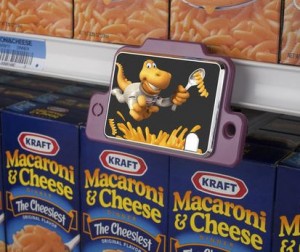Some people may think I have a crush on video rental company Netflix because I talk about them so effusively.
Maybe.
But this particular commentary is about something they are doing wrong, or at least not doing as well as they could and part of this stems from how much their brand has evolved over the years. When Netflix started out, they set out to keep you on the couch. The only way you could get videos from Netflix was in the mail. They didn’t want you to go to the theater. But as they evolved, they started collecting feedback about movies we have seen irrespective of whether we saw them through Netflix and that then fed their recommendation engine so they would be better about letting us know how likely we would be to enjoy a film (which as users know is uncanny how good it is at using our feedback to predict what we will like). So now that we can review any film we have seen anywhere, we can now stream videos directly from their site (amazing experience on an iPad, by the way), and we can reserve movies that aren’t yet available, their brand has really evolved. The Netflix brand now extends to any film experience we have in large part because we can rate those films which leads to an even richer relationship with them.
So a quick recap – what is Netflix good at:
1) Having an incredible catalog of films
1) Listening to, and capturing what we want to see
2) Capturing our feedback and digesting it so they can recommend (or discourage) future viewings
3) Matchmaking between viewers and films
4) They also happen to have one of the best user experiences on their site. Very click-efficient (alice.com should take note)
 Last year I was on a panel with Deborah Person who runs the largest film festival in North America, the Seattle International Film Festival (better known as SIFF), and the discussion turned to alliances and I commented that Netflix would be a great partner for SIFF. Initially Deborah’s reaction was that Netflix is competition for SIFF, but I pointed out that was the Netflix of old where they didn’t want us to leave our couch. Things have changed. That, by the way, is the lesson for all of us – companies do change and someone who was competition yesterday, may now be your best ally.
Last year I was on a panel with Deborah Person who runs the largest film festival in North America, the Seattle International Film Festival (better known as SIFF), and the discussion turned to alliances and I commented that Netflix would be a great partner for SIFF. Initially Deborah’s reaction was that Netflix is competition for SIFF, but I pointed out that was the Netflix of old where they didn’t want us to leave our couch. Things have changed. That, by the way, is the lesson for all of us – companies do change and someone who was competition yesterday, may now be your best ally.
The films at SIFF are new films that are looking to get picked up by distributors, so Netflix hasn’t heard of any of these films yet but if they could get entered into the Netflix system, Netflix would be able to start recommending specific films for specific SIFF viewers. That match-making between viewers and films is one of the toughest things that film festivals have to go through, by the way. That’s already a big win-win for Netflix and SIFF, but now if the viewers actually go in and rate the films they have seen, Netflix now has visibility into that information and even if some of these films never get picked up, Netflix may want to add them to their catalog and add an even more detailed dimension to their catalog, especially with the increase in use of streaming video which I was recently told is already 55% of their viewership.
The other piece of this that may be more useful for SIFF than Netflix (but I could be wrong on this) is if they do a diligent job of capturing this information – without compromising any personal information, they can share the data of who liked, and didn’t like the films, by age, gender and ZIP code (which is how alice.com makes their money). That would add a whole new dimension to movie marketing – if it’s already known which demographics like the film, there’s much lower risk to the distributors about where a movie will be a hit.
So that’s the kind of rethinking Netflix needs to do, not just with SIFF, but every movie festival. It’s very much in line with their brand evolution and the film festivals and the distributors get a get boost as well.
-Ric
 Most innovations we hear about these days involve some new technology, or some new application of an existing technology, but some of the most interesting and exciting innovations go in the opposite direction – seeing that something incredibly simple and low-tech is a better “how” to do something.
Most innovations we hear about these days involve some new technology, or some new application of an existing technology, but some of the most interesting and exciting innovations go in the opposite direction – seeing that something incredibly simple and low-tech is a better “how” to do something. to test air quality levels. It’s really simple, they simply collect the honey from the bees and test it for toxins like certain hydrocarbons and heavy metals. As we read about bees disappearing from our farmlands, this seems like a creative way to re-introduce them into some areas and not only re-grow the bee population, but also learn a lot about air quality.
to test air quality levels. It’s really simple, they simply collect the honey from the bees and test it for toxins like certain hydrocarbons and heavy metals. As we read about bees disappearing from our farmlands, this seems like a creative way to re-introduce them into some areas and not only re-grow the bee population, but also learn a lot about air quality. the group, my favorite is still why Morton Salt uses their trademark phrase “when it rains it pours” – the answer is magnesium carbonate, but the more interesting part is what problem it solved. Any guesses?
the group, my favorite is still why Morton Salt uses their trademark phrase “when it rains it pours” – the answer is magnesium carbonate, but the more interesting part is what problem it solved. Any guesses? Fashion, sports, science, politics, sports, business, arts, travel, the arts, etc, it’s all in there and extremely high quality reporting every day. Incredible photography as well. They made the shift to online as elegantly as any of the major paper publishers and I believe that they will survive the growing trend of people not reading newspapers any more as shorter digital content becomes more prevalent. Do I think my son will ever have a paper delivered to his house? No. And I think the expression “it was in the paper Wednesday” will fade because we don’t think of news as the daily chunk that a newspaper is, we get our information from many sources throughout the course of the day.
Fashion, sports, science, politics, sports, business, arts, travel, the arts, etc, it’s all in there and extremely high quality reporting every day. Incredible photography as well. They made the shift to online as elegantly as any of the major paper publishers and I believe that they will survive the growing trend of people not reading newspapers any more as shorter digital content becomes more prevalent. Do I think my son will ever have a paper delivered to his house? No. And I think the expression “it was in the paper Wednesday” will fade because we don’t think of news as the daily chunk that a newspaper is, we get our information from many sources throughout the course of the day. But they have figured out a way to hedge their bets with The New York Times Store. I have been aware of the store for a number of years (as far as I know it’s only an online store – I see the ads printed in the paper that is delivered to my house every day). I have seen countless ads for the store with the timeless image of Y.A. Tittle, helmet-less after a crushing loss as a New York (football) Giant. It sells for about $200 signed by Tittle. The tittle photo is one of many in a standard ad that has run for the store for years. That has always struck me as a simple but logical extension of the brand of the paper to sell copies of the photos it prints. Probably not a gigantic business, but worth the effort.
But they have figured out a way to hedge their bets with The New York Times Store. I have been aware of the store for a number of years (as far as I know it’s only an online store – I see the ads printed in the paper that is delivered to my house every day). I have seen countless ads for the store with the timeless image of Y.A. Tittle, helmet-less after a crushing loss as a New York (football) Giant. It sells for about $200 signed by Tittle. The tittle photo is one of many in a standard ad that has run for the store for years. That has always struck me as a simple but logical extension of the brand of the paper to sell copies of the photos it prints. Probably not a gigantic business, but worth the effort. And to top it all off, they included off-the-charts great customer service which is consistent with how the customer service at the paper has performed.
And to top it all off, they included off-the-charts great customer service which is consistent with how the customer service at the paper has performed. 3GTV is the brainchild of Automated Media Services, and they are putting little screens in stores right next to products they promote and show commercials for those products. The notion of having what amounts to a tiny TV screen next to the Kraft Macaroni & Cheese would have sounded bizarre 20 years ago, not just because of cost, more because we didn’t think of TV screens being in very many places. Screens are everywhere today (mostly because of the low cost) and so we are less surprised to see them at restaurants and in elevators, etc.
3GTV is the brainchild of Automated Media Services, and they are putting little screens in stores right next to products they promote and show commercials for those products. The notion of having what amounts to a tiny TV screen next to the Kraft Macaroni & Cheese would have sounded bizarre 20 years ago, not just because of cost, more because we didn’t think of TV screens being in very many places. Screens are everywhere today (mostly because of the low cost) and so we are less surprised to see them at restaurants and in elevators, etc. Now things are really cooking with connecting marketers with consumers once we get this rolling. My guess is that Groupon, the ridiculously (their word, kind of) successful coupon company that just closed a $135 million round of financing will be in the mix. Add them to the list of “I wish I had thought of that!” Placebook and PointInside will also probably be in there.
Now things are really cooking with connecting marketers with consumers once we get this rolling. My guess is that Groupon, the ridiculously (their word, kind of) successful coupon company that just closed a $135 million round of financing will be in the mix. Add them to the list of “I wish I had thought of that!” Placebook and PointInside will also probably be in there.